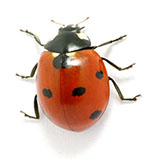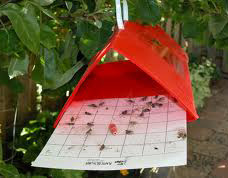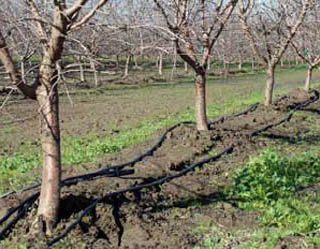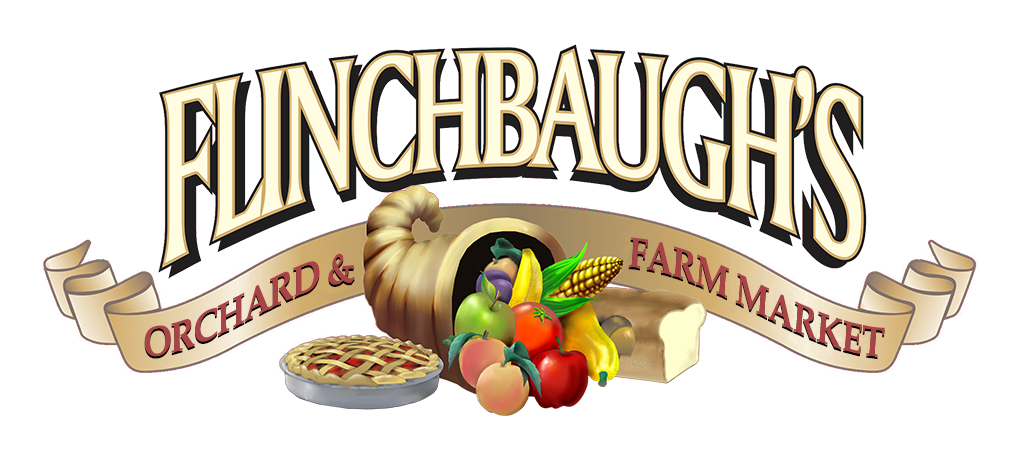How We Grow - Sustainable Practices
Growing Methods used at Flinchbaugh’s Orchard
Providing safe, high quality fresh foods for our consumers and end-users is of great importance to the Flinchbaugh family. To ensure that we are able to provide these top-notch products and protect our environment and conserve our resources we utilize an Integrated Pest Management (IPM) program, drip irrigation methods, cover crops and no-tillage planting on our farms and orchard.
 Integrated Pest Management (IPM) program
Integrated Pest Management (IPM) program
An Integrated Pest Management (IPM) program is an effective and environmentally sensitive approach to pest management that relies on a combination of common-sense practices. Our IPM program uses current, comprehensive information on the life cycle of pests (insects, weeds, viruses, etc) on our farm and their interaction with the environment. This information, in combination with available control methods, including cultural, biological, mechanical and chemical, is used to manage pest damage by the most economical means and with the least possible hazard to people, property and the environment.
Our IPM program does not use a single pest control method, but rather, a series of pest management evaluation decisions and controls. We use a four step approach:
Set Action Thresholds. Before any pest control action, we set action thresholds, a point at which pest populations or environmental conditions indicate that pest control action must be taken. Sighting a single pest does not always indicate control is needed. Rather the level at which pests will become an economic threat is critical to guide pest control decisions.
 Monitor & Identify Pests. Not all insects, weeds and other living organisms require control. For instance, various organisms are actually beneficial to our farm, such as the lady bug. Accurate monitoring and identification removes the possibility of utilizing control methods that may not be really needed or that the wrong one may be used.
Monitor & Identify Pests. Not all insects, weeds and other living organisms require control. For instance, various organisms are actually beneficial to our farm, such as the lady bug. Accurate monitoring and identification removes the possibility of utilizing control methods that may not be really needed or that the wrong one may be used.
Prevention. Preventing pests from becoming a threat is clearly the first line of defense against pest control. Flinchbaugh’s Orchard utilizes various cultural methods, such as rotating between different crops, selecting pest-resistant varieties, and pruning trees to limit pest populations. These are generally very effective.
Control. Once monitoring, identification and action thresholds indicate that pest control is required and preventive methods are no longer effective or available, IPM evaluates for the proper control method for both effectiveness and risk. Biological and mechanical controls are chosen first at Flinchbaugh’s, such as pheromones to disrupt pest mating, and trapping or mowing. If further monitoring, ID and action thresholds indicate these options are not working, then additional pest control methods are employed, such as targeted spraying of pesticides.
Example of implementation of IPM on our farm: The growing environment in York, PA is very inclined to high humidity, adding susceptibility of fruit rot and diseases within our Orchard. Mike Flinchbaugh, our Orchard Manager, monitors twice a week for symptoms of fruit rot in unharvested immature and mature fruit. To decrease the opportunity for fruit rot, trees are pruned in a manner that allows ample air flow through the tree. Flowing air inhibits the buildup of moisture within the tree which decreases the on-set of fruit rot.
 Drip Irrigation
Drip Irrigation
The permanent drip irrigation system utilized in the orchards at Flinchbaugh’s is by far the most efficient system of its kinds. This system saves water by allowing the water to drip slowly to the roots of trees and plants, either onto the soil surface or directly into the root zone, through a series of piping, tubing and emitters. Only the desired plants roots receive the needed moisture at a rate it can absorb. This system is only used when rains are not sufficient enough for our crops to grow.
No-tillage
No-tillage is used as a method of growing crops without disturbing the soil through tillage. At Flinchbaugh’s Orchard and Farm the implementation of our no-tillage farming practices has increased the organic matter retention of our soil, increased the amount of water that infiltrates into the soil, and ultimately eliminates soil erosion. The soils are often more resilient, as the biological fertility of our soil is greatly improved.
Cover Crop
Cover Crops are a part of our long-term investment in improved soil health and farm management. By planting cover crops on our farm lands we are able to slow erosion, improve soil health, enhance water availability, smother weeds, help control pests and diseases, increase biodiversity and bring a host of other benefits to the soil.
This list of practices, while intensely important, is only a small glimpse of the steps and methods we take to protect and improve our soils and water ways. We hope you too, will strive to care for the natural resources we have been given, so that the next generation will be gifted them too.
Farm Ground Rental
As the next generation of Flinchbaugh’s have joined the family business, we are interested in renting other local farm ground in the Hellam, Wrightsville, Yorkana, East Prospect, East York, Red Lion, Dallastown, Dover and Mount Wolf area. As you have read, we value the soil, our water resource and capacity to provide for our local community and beyond. We would be happy to be able to care for your farm and soils in a similar fashion. Please feel free to contact us regarding renting your farm ground. Contact: Julie at (717)252-2540.
Learn more about our Grain Production.
Read more here about Flinchbaugh Farms – How We Grow.

